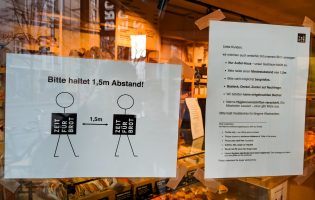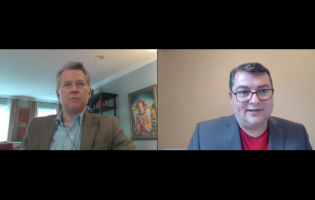
Enduring Partnership
Recommendations to the Next U.S. Administration for the German-American Relationship The United States and Germany have forged a unique partnership in the seventy-five years since the end of World War II, …

Testing State Leaders in a Pandemic: The Rise of Andrew Cuomo and Markus Söder
“Never let a crisis go to waste.” So think many politicians when opportunities emerge to amplify their reputations. The truth is that crises do help politicians and voters to separate …

Weighing European Integration against Democracy? The German Constitutional Court’s Decision on ECB Operations
The German Constitutional Court may have dealt a major blow to European integration when it recently ruled that the federal government and the German parliament had violated the rights of …
Recent Authors
AGI provides knowledge, insights, and networks as tools to solve the challenges ahead.
Support Our Work
Fight the COVID-19 Pandemic with Innovative Democratic Surveillance
Governments around the world are increasingly embracing the idea of digital contact tracing to detect infections and facilitate quarantine in the global fight against the COVID-19 pandemic. Initially skeptical of …

Quo Vadis CDU: Left, Middle, or Right?
When Annegret Kramp-Karrenbauer (AKK,) the CDU party leader and presumed successor to Angela Merkel as chancellor, announced her resignation from her role as CDU party chairwoman on February 8, 2020, speculation about …








